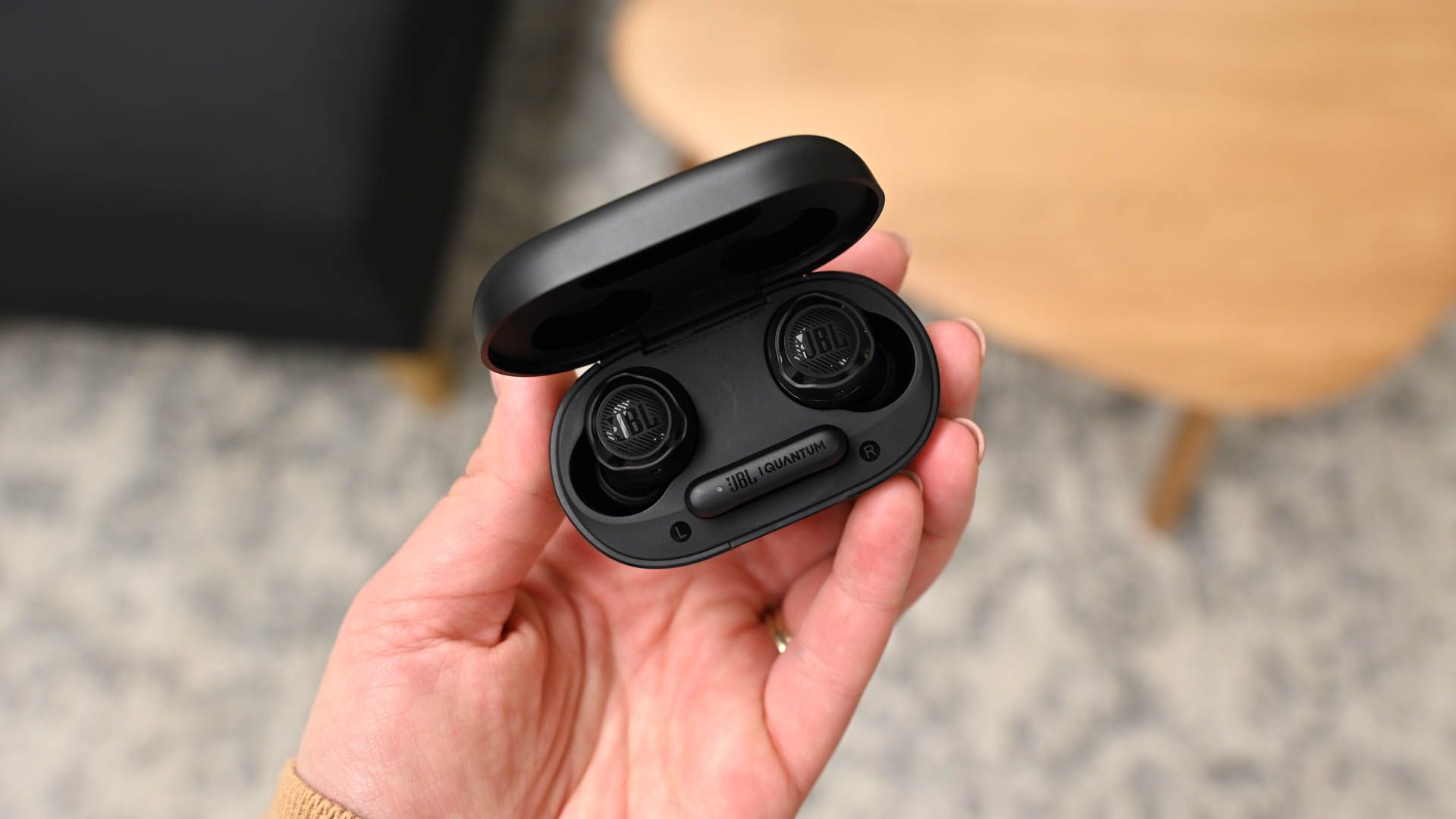
It’s something of a running joke among Windows users that Macs are rubbish for gaming. Traditionally the Mac hasn’t been considered a great choice for gaming. There are Macs that can play games well, but they are generally much more expensive than the equivalent PC. Also the fact that upgrading a Mac to meet the requirements of a graphically-demanding modern game is pretty much a no-no makes Macs the least future-proof option for gamers (who often like to be able to tinkle with their computers to build the ideal machine for their purpose).
But Macs have become a much better choice for gaming enthusiasts with the advent of Apple’s first M1 Macs in 2020, the subsequent M1 Pro, M1 Max and M1 Ultra, and now the M2, M2 Pro and M2 Max. In the past, only the most expensive Macs offered the discrete graphics necessary for gaming. While M-series Macs don’t feature discrete graphics, their graphics capabilities are far beyond the integrated options in Intel Macs and they even beat the best of the discrete graphics cards that were previously included in Intel-powered Macs. With the arrival of the M2 Pro in the MacBook Pro and Mac mini, and the M2 Max in the MacBook Pro, Apple has finally produced a chip that is capable of handling graphics-intensive AAA games.
Another significant change, that is coming with macOS Sonoma later in 2023, is a new Game Porting Toolkit for developers and a Game Mode for gamers (Apple silicon only). Game Mode will kick in to give games higher process priority, reduce AirPods audio latency, and double the Bluetooth sampling rate for game controllers.
The Game Porting Toolkit will take x86 code and other elements, such as DirectInput commands, XAudio commands, Direct3D commands, and other Windows gaming API calls, and translate them to run on Apple silicon in real-time. It’s like Rosetta for Windows games, although it only does part of the job: the game’s developer still needs to translate the game for Macs and make sure everything works properly. Along with the Game Porting Toolkit Apple will also offer a Metal Shader Converter, to make aspects of these translations easier. We hope that this is the first indication that Apple is taking Mac gaming more seriously and that down the line hundreds of Windows games will be available for Macs.
In the meantime, it’s still not quite the case that Macs are great for games, but it is no longer the case that Apple’s Macs are no good for games. The main problem is the lack of games available for the Mac – let alone the M-series Chip – right now, and that is what Apple is trying to rectify.
There is also the fact that, despite perfectly respectable performance, Macs can’t fully compete with purpose-built gaming PCs when it comes to gaming. Even the Mac mini with M2 Pro, which is one of our top choices for Mac gaming right now, would be crushed by a comparably-priced Windows gaming PC. Read: Even with the M2 Pro, Mac gaming is as bad as it’s ever been to find out why.
But, for those who are looking for a Mac to do all the things Macs can do and be good for gaming, right now there are some great options. For more general advice about which Mac to buy try our Mac buying guide.
The state of gaming on the Mac
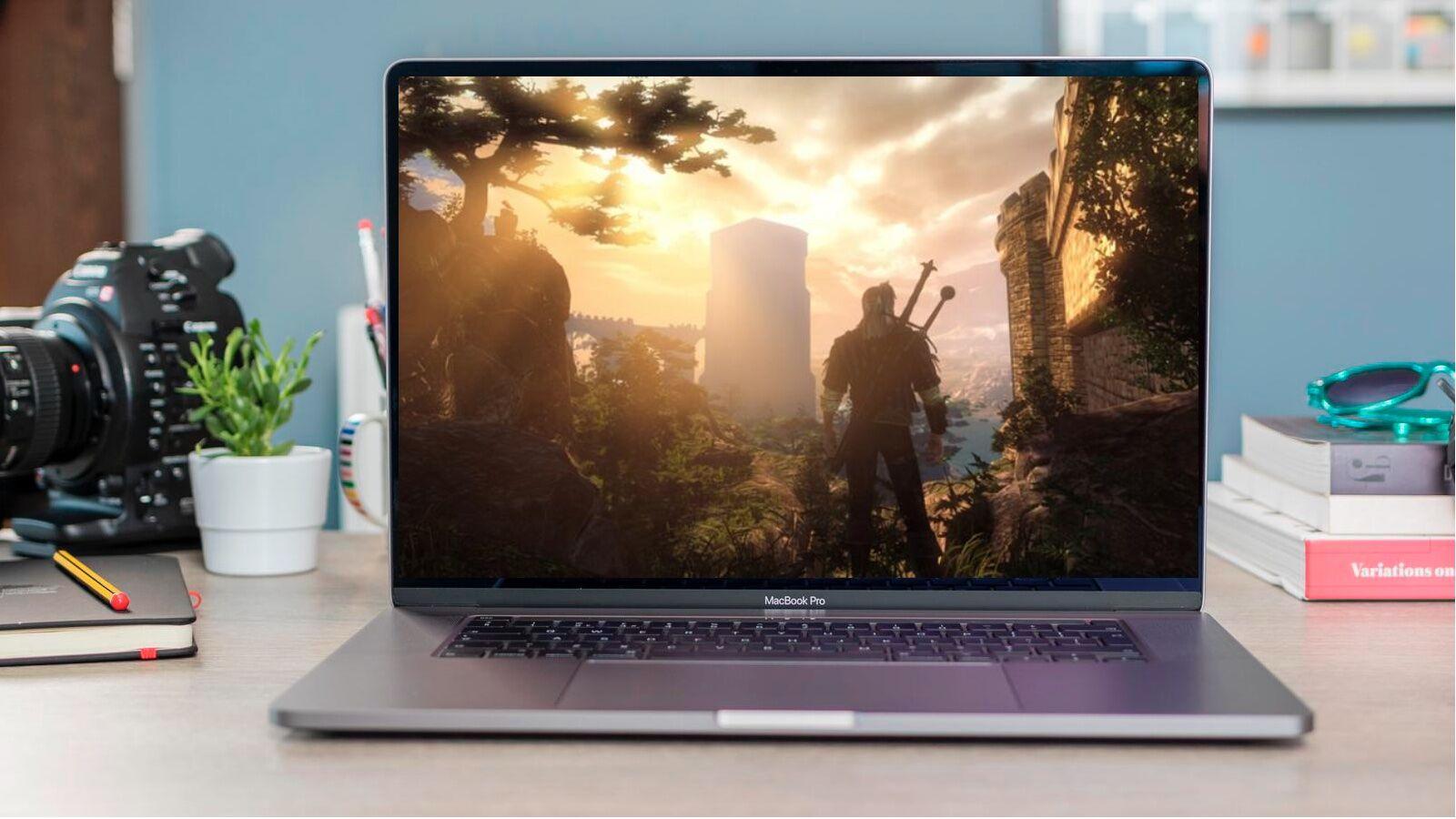
The problem with Mac gaming is that there aren’t a lot of games that are actually available for Macs, let alone M-series Macs. It doesn’t matter how good a Mac might be as a gaming machine if it won’t run the games you want to play.
In a previous version of this article, pre-M1, we talked about how the Mac gaming scene had picked up since Macs started to use the same Intel processors as Windows PCs (back in 2007). The strong sales of Macs in recent years also helped encourage developers to make more A-List games available on the Mac than ever before. Just check out our roundup of the best Mac games for some of the highlights, we also have a round-up of the best free Mac games.
However, with the arrival of the M1 chip in 2020 this all changed. With the majority of AAA games starting life on Windows on Intel-powered X86-based PCs, games developers, or publishers such as Feral or Aspyr, now need to write their games for the new ARM-based chip as well as Intel. Porting Windows games to the Mac when they were powered by Intel wasn’t such a struggle, because it was the same instruction set, but, now that Macs are not based on Intel, the instruction set is further removed from PCs than ever and the job that much more complex. This is why Apple is introducing the Game Porting Toolkit to make this process easier for developers.
But it’s not only the M-series chips to blame here – when it arrived in 2019 macOS Catalina stopped support for 32-bit code – which meant a lot of games that used 32-bit code were no longer Mac compatible. At the same time, Apple also introduced Metal for 3D graphics. So even before the arrival of the M1 a lot of games developers had already decided against making new Mac versions of their games because of the extra work required.
The good news is that not all developers need to rewrite their code for the M-series chips. Apple has developed Rosetta 2, a dynamic binary translator that translates instructions from Intel to ARM so that the software can run on M-series Macs. Thanks to Rosetta a number of games are working on M-series chips – although they don’t all work perfectly.
Some game developers had made native versions of their games for the M-series Mac early on and now there are a number of Mac games that run natively on the M-series chip. For example, Blizzard’s World of Warcraft was M1 ready since the day the M1 Mac launched, and Gameloft’s Asphalt 8 and Asphalt 9 both run natively on the M1.

Baldur’s Gate 3, Disco Elysium, Myst, Asphalt 8, Doom, EVE Online, Minecraft, Resident Evil Village, and others are also M1 native.
There are now 259 M1-native games, and many more that run well through Rosetta, according to this list. You can play Banner Saga, BioShock 2 Remastered, Borderlands, Diablo III, Final Fantasy XIV, Hogwarts Legacy and more via Rosetta.
Fortnite was a popular game that runs on M1 Macs via Rosetta. However, thanks to Epic’s fall out with Apple the developer is no longer issuing updates to the game.
The following Aspyr games run via Rosetta: Borderlands 3, Call of Duty, Civilization VI, and Planet Coaster. Aspyr was bought in February 2021 by Embrace Group for $100 million, who says it will accelerate Aspyr’s growth and license even more games.
A number of Feral releases are also playable via Rosetta on the M1 Mac. These include A Total War Saga: Troy, Deus Ex: Mankind Divided, Dirt and Dirt Rally, and Shadow of the Tomb Raider, which run reasonably well.
Steam is another source of gaming on the Mac. The Steam platform is compatible with Apple’s M-series chips, but not every game in the Steam library will run on M-series Macs. Read: How to use Steam on a Mac to find out more.

In the pre-M1 days the Mac also has a cunning trick up its precision-engineered sleeve in the form of Boot Camp. Installing Windows via Boot Camp means it is possible to play Windows games on an Intel-based Mac. Alternatively, Parallels or VMware might have been considered options for PC gaming on a Mac.
Unfortunately, if you have an M1 or later Mac, Boot Camp is no longer offered and Parallels and VMware aren’t able to run the Intel version of Windows on the M1 Mac (Parallels can run the ARM version of Windows, but that’s still in development and the games you’d be looking to run won’t run on that anyway).
If you really want to run un-ported Windows games on an M-series Mac Crossover Mac from Codeweavers is a good option. It can translate x86-64 code for Windows to ARM64 code for macOS. Read: CrossOver 20 brings Windows apps to M1 Macs.
If that doesn’t appeal then you will have to wait for Feral Interactive, Aspyr and others to port PC games to M-series Macs.
All this may mean that fewer PC games come over to the Mac, but perhaps this doesn’t matter. ARM-based Macs will natively be able to run any iOS or iPad app, which should bring a number of games over to the Mac from the iPhone and iPad, so far there are around 60 iOS games playable on the Mac including: Among Us, Alien Isolation, Call of Duty: Mobile, Dragon Quest VIII, Grand Theft Auto, Minecraft, Monument Valley, Need for Speed No Limits, Stardew Valley, and X-Plane Flight Simulator.
but even more interesting: some games machines, such as the Nintendo Switch, run on ARM processors, meaning it is theoretically possible to run Switch games on the M1 Mac.
That’s the state of Mac gaming right now. If you want to play games on the Mac you can, but there are limits depending on whether you have an Intel processor or an M1 Mac. But in the long term there is the promise of a wider catalogue of games coming to the M1 Mac.
So, with all this interactive entertainment available to the prospective buyer, which Mac should you choose.
Gaming on the Mac: What you need
Playing the latest games places heavy demands on a computer, both in terms of graphics and processor performance. To ensure you have the best platform for your digital adventures you’ll want a machine that has a fast processor (CPU). You can find 12-core CPUs in the M2 Pro and M2 Max, while the Mac Studio offers the 24-core CPU M2 Ultra (you can also get the M2 Ultra in the Mac Pro, but we don’t recommend that for gamers).
It also helps to have a powerful graphics processor. While casual games use simple two-dimensional graphics that don’t require too much graphical power, the detailed 3D graphics used in high-speed action games can put a lot of strain on your machine. The GPUs on offer from Apple include 16- or 19-core GPUs in the M2 Pro, 30- or 38-cores in the M2 Max, and 60- or 76-cores in the M2 Ultra-powered Mac Studio.
We also recommend at least 16GB RAM, although our advice would be to get the most RAM you can afford at the point of sale, as it’s impossible to update later. You can get up to 32GB unified memory (Apple’s name for RAM) with the M2 Pro (in the MacBook Pro and Mac mini), up to 96GB RAM in the M2 Max (in the MacBook Pro and Mac Studio), and up to 96GB RAM in the M2 Max (in the MacBook Pro), and a massive 192GB with the M2 Ultra (Mac Studio and Mac Pro).
A decent display is also going to be a bonus, but since nearly every Mac (bar the Mac Studio and Mac mini) has a high-resolution Retina display, you can be sure that games will look great on your Mac. If you are after a decent display to plug in check out our recommendations for the best display for Mac.
A fast and reasonably high-capacity solid-state drive is a good idea too as games can take up a lot of gigabytes and will also help to improve gaming performance. Luckily Apple no longer sells any Macs with hard drives or the Fusion drive that combined a hard drive and flash storage, but it’s worth noting that some Macs have slower SSDs than others. It’s generally the entry-level models with 256GB storage that are affected by this, although it seems that the 512GB MacBook Pro may also be affected (read about Apple’s entry-level SSD slowdown). With this limitation in mind, it could be wise to get at least a 1TB SSD, if you can afford to.
Another thing to look out for is how well the computer will handle the processor-intensive games. For example, we wouldn’t recommend the MacBook Air because, although the MacBook Air might look like it has similar specs to the 13-inch MacBook Pro, it lacks fans so it may slow down to avoid overheating.
We’d also recommend a comfy gaming chair, some snacks that can be eaten one-handed, and the occasional break to save your spine from developing an unusual shape.
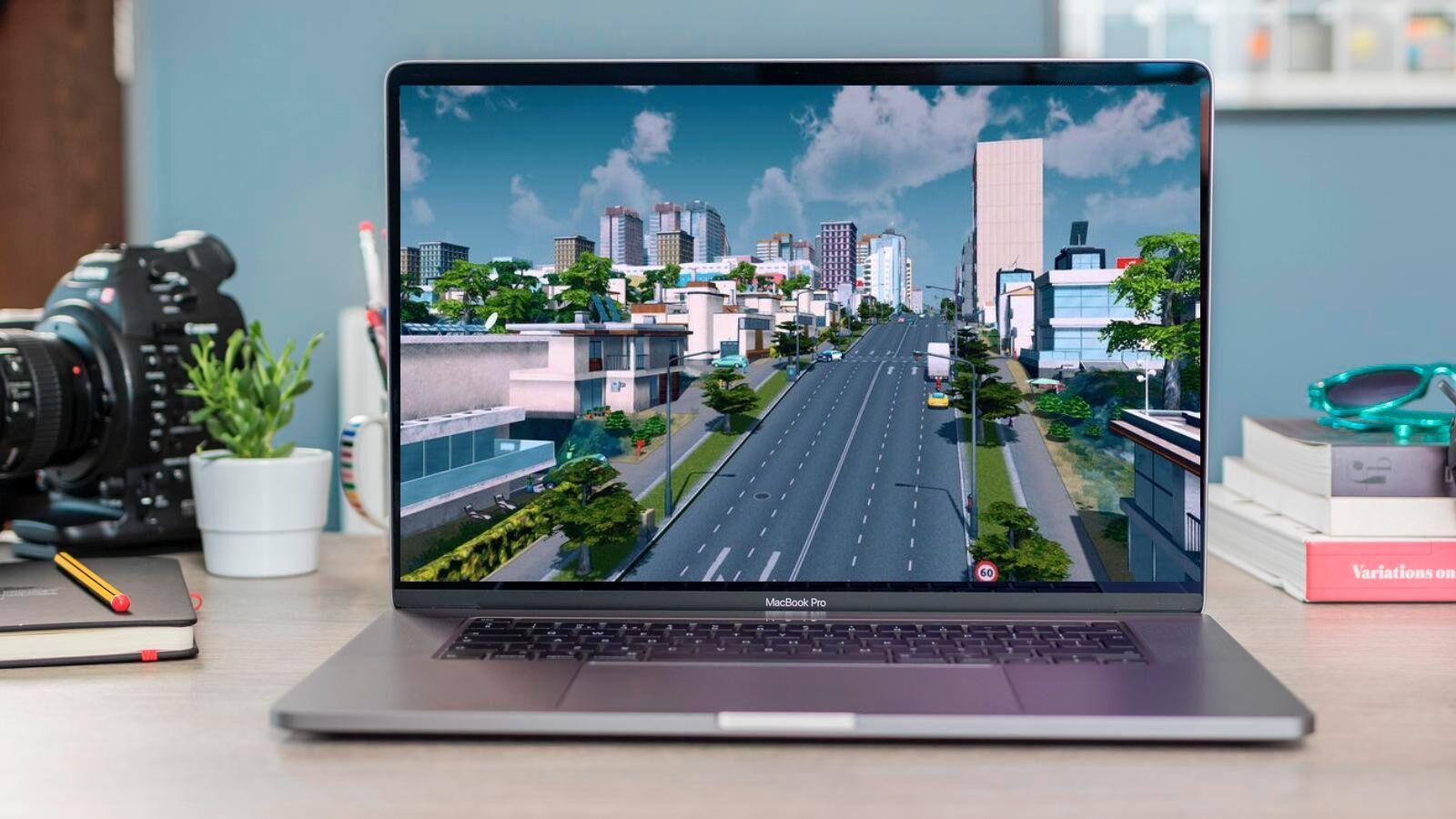
In the Intel Mac world you’d need an Intel Core i5 or Core i7 running at 2.0GHz or more. You would also need a decent, discrete graphics card. One option for non-M1 Macs is to plug in an eGPU to add a discrete GPU to your Mac and benefit from the improved graphics capabilities, unfortunately, the M-series Macs won’t work with an eGPU. Read: How to use eGPU with Mac. Also read our round up of the best eGPUs for Mac.
Macs gamers should avoid
Graphics performance will obviously vary depending on the type of games you like to play. The general rule of thumb is that if you intend to play fast 3D action games then you should consider the M2 Pro, M2 Max or M2 Ultra. The M2 might be sufficient for some gamers, especially those on a budget, but if you can afford to go pro you would be wise to.
Some Macs simply won’t have the power to run graphically demanding titles and frame rates will quickly drop to almost unplayable levels when there are lots of characters battling it out on the screen. That reliance on integrated graphics means that there are several Mac models that gamers will probably want to avoid if they want to play graphically demanding games. Of course, if your primary form of entertainment is less demanding fare such as Football Manager, Limbo, or many of the indie games you’ll find on the Mac App Store, then pretty much any Mac will fulfill your needs – as would an iPad.
These Macs would be sufficient for casual gaming, but we recommend you avoid them if you want to play graphically demanding titles:
- Intel Macs
- Mac mini (M2 or or older models)
- MacBook Air (M2 or or older models)
- 13-inch MacBook Pro (M2 or or older models)
- 24-inch iMac
Macs for gamers to consider
We’ve ruled out a fair selection of Macs, so now let’s look at some Macs that you can consider if you want to play the latest 3D games.
- Mac mini with M2 Pro (10-core CPU, 16-core GPU): From $1,299/£1,399 (upgradable to 19-core GPU)
- 14-inch MacBook Pro with M2 Pro (10-core CPU, 16-core GPU): From $1,999/£2,149
- 14-inch MacBook Pro with M2 Pro (12-core CPU, 19-core GPU): From $2,499/£2,699
- 16-inch MacBook Pro with M2 Pro (12-core GPU, 19-core CPU): From $2,499/£2,699
- 14-inch MacBook Pro with M2 Max (12-core CPU, 32-core GPU): From $3,099/£3,399
- 16-inch MacBook Pro with M2 Max (12-core CPU, 38-core GPU): From $3,499/£3,749
- Mac Studio with M2 Max (12-core CPU, 30-core GPU): From $1,999/£2,099
- Mac Studio with M2 Ultra (24-core CPU, 60-core GPU): From $1,999/£2,099
These Macs are not cheap, but we track the best deals so you will probably be able to save money if you buy one. You will find the best prices for these different Macs below. We also track the best deals for every model of MacBook Pro separately.
Best Mac for gaming
The lack of games that were ready for the M1 Mac, either to run natively, or to run reasonably well via Rosetta, was a problem for some time, but now the situation is a lot better so it is easier to recommend M1-series Macs for gaming.
Our favorite options are the Mac mini with M2 Pro and the Mac Studio with M2 Max, both of which give you a decent deal compared to similarly specced MacBook Pro models. Since you are likely to prefer a large-screen external display to use with your gaming Mac, the fact that a screen isn’t included isn’t an issue.
1. Apple Mac mini (M2 Pro, 2023)
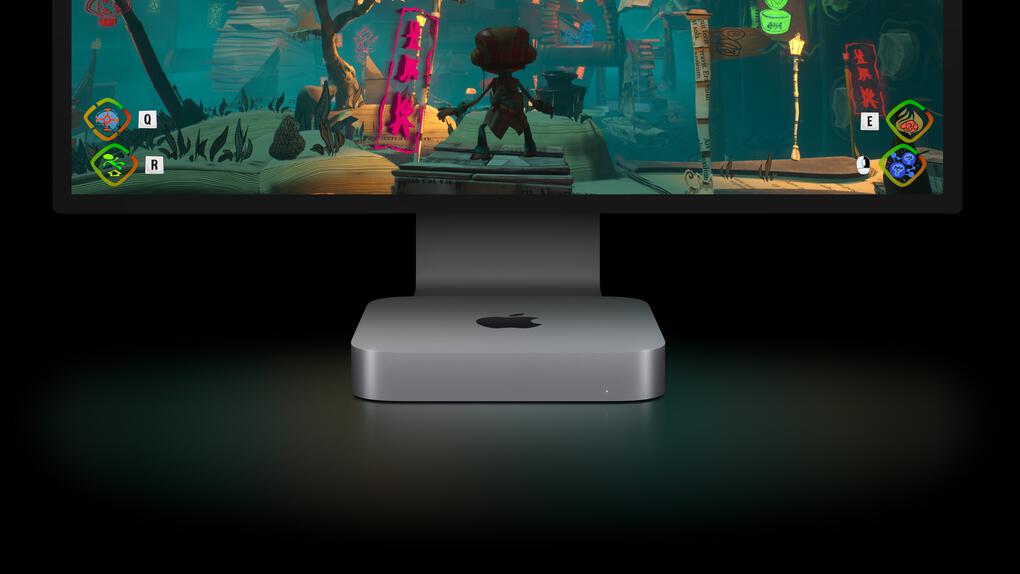
Price When Reviewed:
$1,299
If you want a Mac that is powerful enough to run graphically intensive games without breaking the bank the Mac mini with M2 Pro is a good option. Even Apple is claiming that it’s a great gaming computer. The M2 Pro chip can handle modern AAA games and offers perfectly respectable performance. With prices starting at $1,299/£1,399 for the M2 Pro model with 10-core CPU and 16-core GPU this is the cheapest way to get a powerful enough Mac for gaming.
Read our full
Apple Mac mini (M2 Pro, 2023) review
2. Mac Studio (M2 Max, 2023)
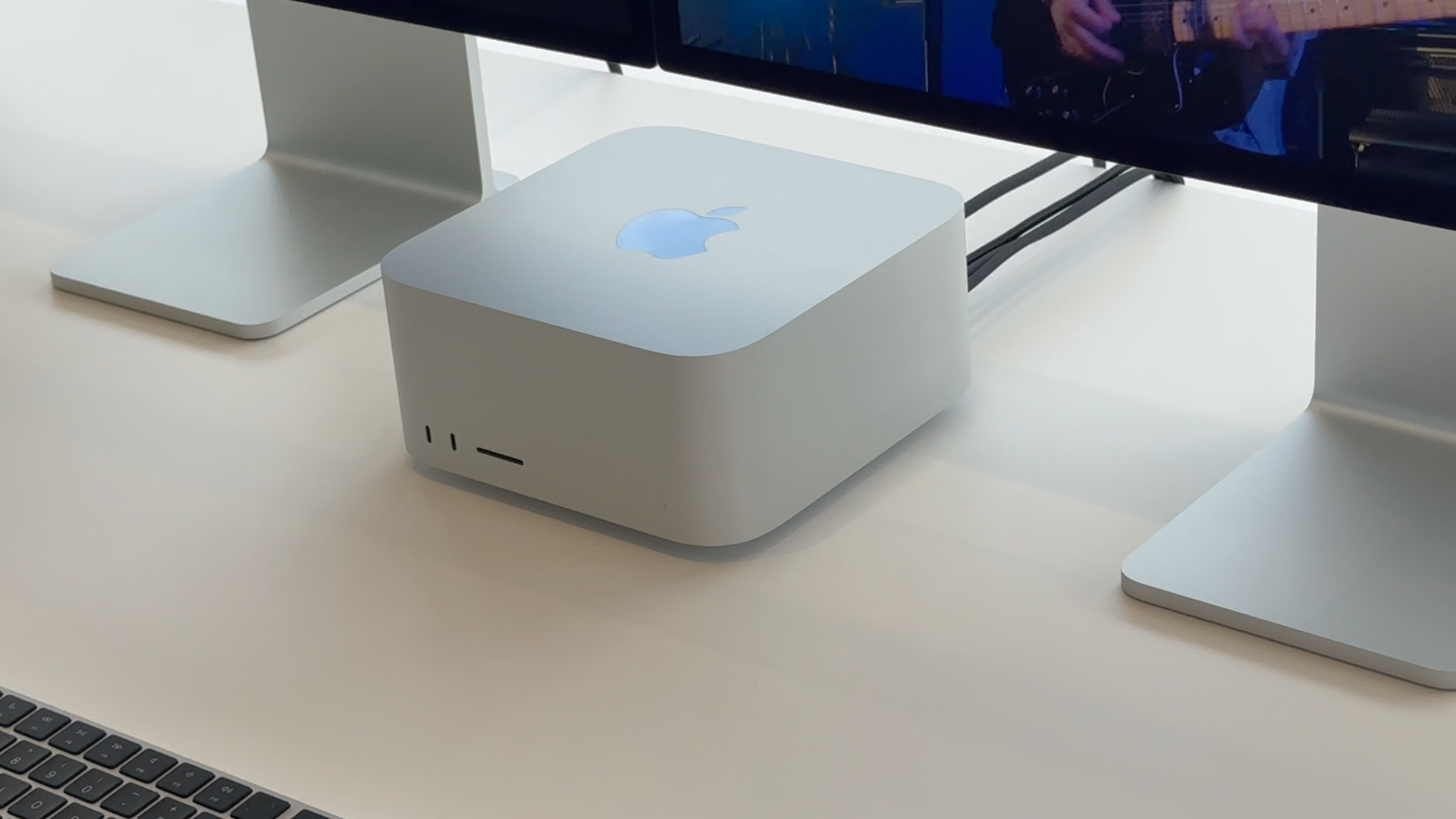
Price When Reviewed:
£1,999
The Mac Studio is another option to consider if you want a powerful Mac without it costing you a fortune. The Mac Studio with M2 Max costs from $1,999/£2,099, so considerably less than the M2 Max MacBook Pro models and even cheaper than the M2 Pro models. With 12-core CPU and 30-core GPU (38-core GPU if you consider the build-to-order options), this is a good way to get a Mac you can use for gaming if you already have a decent display.
Read our full
Apple Mac Studio (M2 Max, 2023) review
3. Apple 14-inch MacBook Pro (2023, M2 Pro, 12-core/19-core, 1TB)
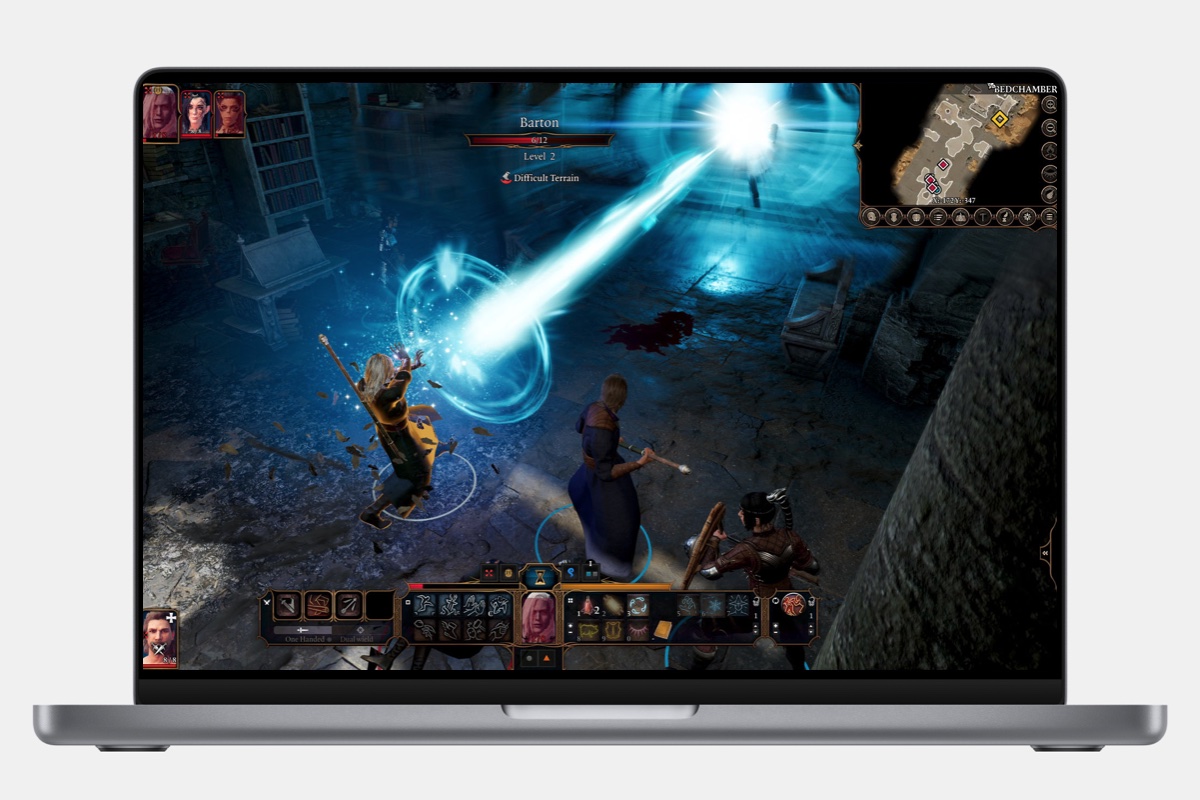
Price When Reviewed:
$2,499
The 14-inch MacBook Pro with M2 Pro chip is a good option for gamers. We suggest that if your budget runs to it you should opt for the mid-range model that comes with 1TB SSD, 12-core CPU, and 19-core GPU (for £2,499/£2,699). That way you avoid the slower SSD of the entry-level model, and get the extra GPU cores. For the same price, you could buy a 16-inch MacBook Pro with the same M2 Pro configurations, but only a 512GB SSD. You may decide you prefer the larger screen, but an external display might be a better choice.
4. Apple 14-inch MacBook Pro (2023, M2 Max, 12-core/30-core, 1TB)
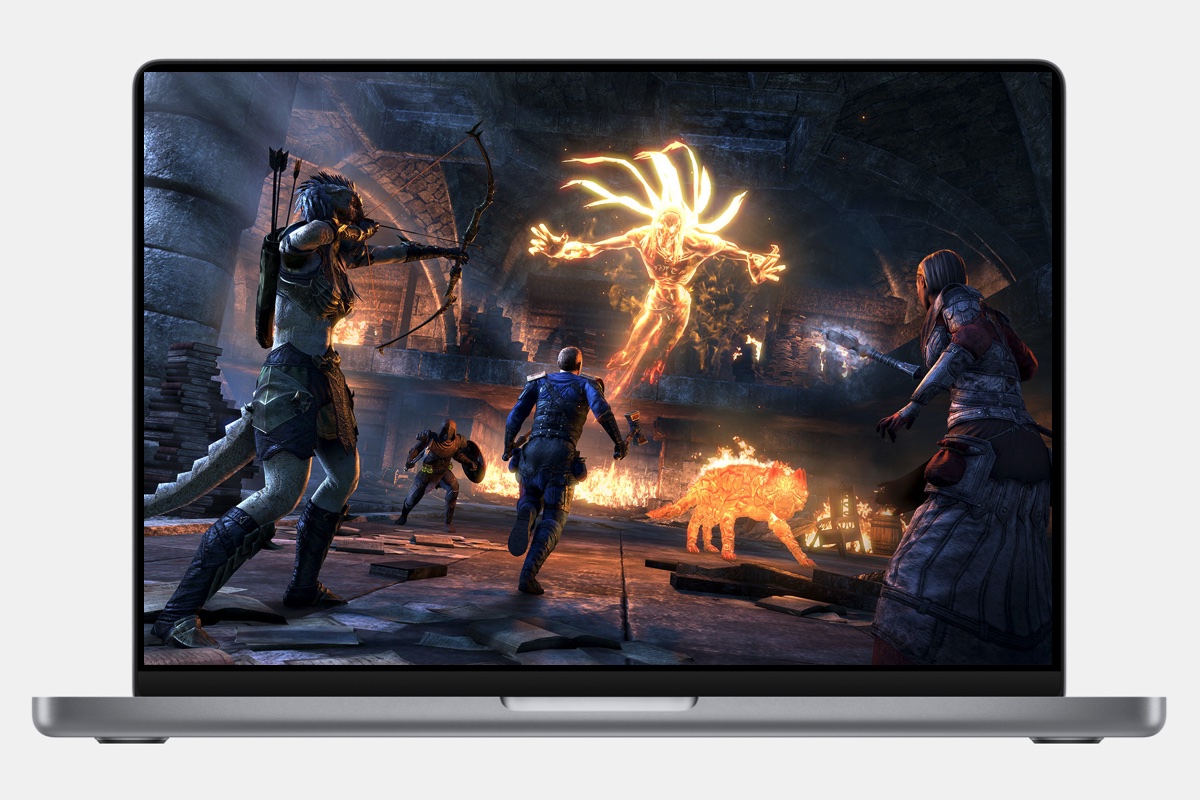
Price When Reviewed:
$3,099
There is a 14-inch MacBook Pro with an M2 Max chip available. It isn’t cheap, starting at $3,099/£3,349, but it offers you a 30-core GPU and 32GB unified memory as standard. There is a 38-core GPU and 64GB and 96GB RAM build-to-order options available, but they are probably overkill. The 16-inch MacBook Pro offers the same M2 Max options, although the 38-core GPU is standard there.
If you really want a good gaming machine you are looking at a very high starting price – and that is the reason why Macs have a reputation for not being good for games. For the price of a M2 Pro Mac mini, you could get a serious Windows-based gaming PC that is better suited to gaming, and still have change left over for a couple of games too. But, if you want a Mac that does gaming well in addition to everything else that makes a Mac great then these Macs will do the job with style.

